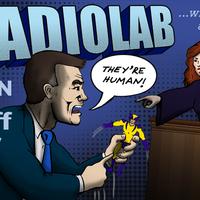
Dec 26, 2011
In this podcast short, a strange twist of legal taxonomy causes a dispute over whether X-MEN action figures are toys or dolls and sparks a court case about what it means to be human.
Reporter Ike Sriskandarajah tells Jad and Robert a story about two international trade lawyers, Sherry Singer and Indie Singh, who noticed something interesting while looking at a book of tariff classifications. "Dolls," which represent human beings, are taxed at almost twice the rate of "toys," which represent something not human - such as robots, monsters, or demons. As soon as they read that, Sherry and Indie saw dollar signs. it just so happened that one of their clients, Marvel Comics, was importing its action figures as dolls. And one set of action figures really piqued Sherry and Indie's interest: The XMEN, normal humans who, at around puberty, start to change in ways that give them strange powers.
So Sherry and Indie went down to the customs office with a bag of XMEN action figures to convince the US government that these mutants are NOT human. That argument eventually became a court case that went on for years. Joe Liebman, former international trade attorney for the US Department of Justice, helps us understand the government's side. And Ike, with help from director and producer Bryan Singer, reflects on the story of the XMEN, and tells us why this case is so poignant for anyone who’s fought to be different without being cast as an outsider.